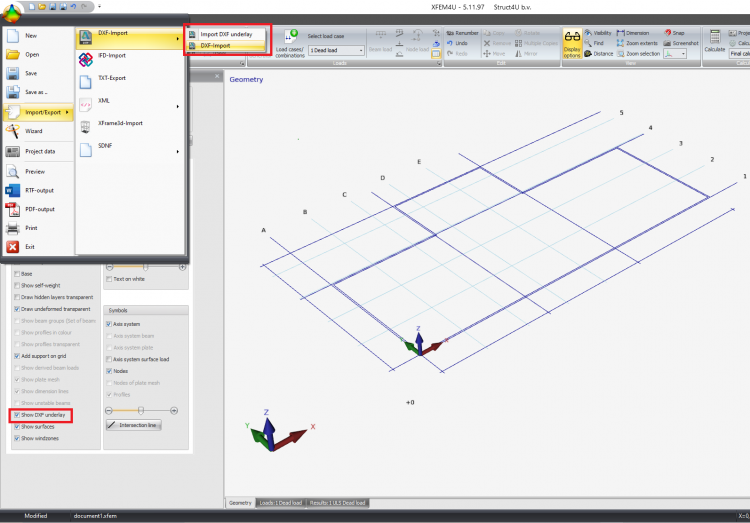DWG/DXF: Difference between revisions
Jump to navigation
Jump to search
No edit summary |
No edit summary |
||
| Line 1: | Line 1: | ||
You can import a DXF-file into XFEM4U. | You can import a DXF-file into [[XFEM4U]]. | ||
DWG is currently not supported natively. You can convert your DXF to DWG using AutoCAD or this [https://cloudconvert.com/dwg-to-dxf free online tool] | DWG is currently not supported natively. You can convert your DXF to DWG using AutoCAD or this [https://cloudconvert.com/dwg-to-dxf free online tool] | ||
| Line 12: | Line 12: | ||
[[File:DXFImport1.png|750px|none|thumb|]] | [[File:DXFImport1.png|750px|none|thumb|]] | ||
Under Display options > General > Show DXF underlay you can toggle the visibility of the DXF underlay. | Under Display options > General > '''Show DXF underlay''' you can toggle the visibility of the DXF underlay. | ||
Revision as of 19:57, 5 May 2022
You can import a DXF-file into XFEM4U.
DWG is currently not supported natively. You can convert your DXF to DWG using AutoCAD or this free online tool
There are 2 options for DXF-import:
- Import DXF underlay: imports the DXF in your model as an underlay.
- DXF-import: converts the lines from the DXF to beams in XFEM4U(??????????????)
Check also this post and video on LinkedIn
Under Display options > General > Show DXF underlay you can toggle the visibility of the DXF underlay.
